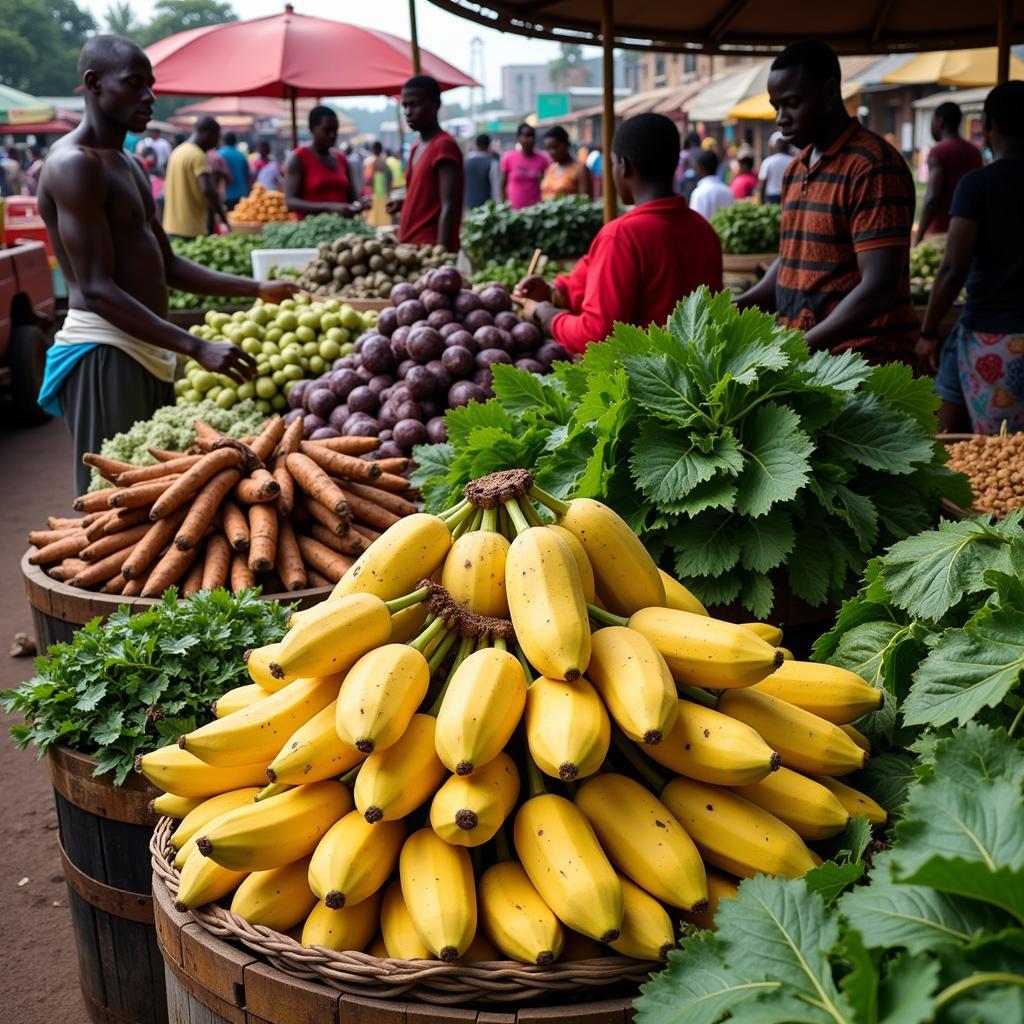Understanding African Grey Regurgitating Behavior
African Grey Regurgitating is a common behavior that often puzzles and sometimes alarms owners. This seemingly strange act is actually a natural and important part of an African grey’s social and emotional life. It’s not necessarily a cause for concern, but understanding why they do it can help you better care for your feathered friend.
Is your African grey regurgitating food? This behavior, although appearing unusual, is often a sign of affection and bonding. Let’s delve into the fascinating world of African grey parrots and explore this intriguing behavior.
Decoding the Meaning of African Grey Regurgitation
African grey regurgitation isn’t about vomiting due to illness. It’s a voluntary action where the bird brings up food from its crop. This regurgitated food is often offered to their mate, chicks, or even a beloved human. It signifies a strong bond and is a way of showing care and affection. Sometimes, the bird might also regurgitate onto a favorite toy or object, treating it as a surrogate companion.
The action itself involves the bird bobbing its head and bringing up undigested food. This isn’t always food; it can also be a mix of seeds, fruit, or other items they’ve ingested. While it might seem unappealing to us, it’s a crucial part of their social language.
Imagine an African grey breeding pair. The male will often regurgitate food for the female during courtship and while she is nesting. This provides vital nutrients and strengthens the pair bond.
This brings us to another important aspect of understanding this behavior. Regurgitation is also a way for African greys to share food with their young. Parent birds regurgitate food directly into the chicks’ mouths, ensuring they receive the nourishment they need to grow.
Regurgitation isn’t exclusive to mating pairs or parent-chick relationships. A bonded African grey might regurgitate for its human companion as a sign of deep affection. They see you as part of their flock and express their love and care through this intimate gesture. It’s a high compliment, though one you might prefer to politely decline.
Is My African Grey Sick? Differentiating Regurgitation from Vomiting
While regurgitation is usually a normal behavior, it’s important to distinguish it from vomiting, which can indicate a health problem. Vomiting is often forceful and involves the expulsion of partially digested food from the bird’s proventriculus (the first part of the stomach). It’s usually accompanied by other signs of illness like lethargy, loss of appetite, or changes in droppings. If you suspect your African grey is vomiting, consult an avian veterinarian immediately.
Regurgitation, on the other hand, is a gentler, more controlled action. The bird brings up undigested food from its crop, and it’s typically not accompanied by other signs of illness. Observing your bird’s overall health and behavior is key to understanding the difference.
Think of it this way: regurgitation is like offering a loved one a piece of your favorite treat, while vomiting is an involuntary reaction to something upsetting your stomach.
Managing Regurgitation in Your African Grey
If your African grey is regurgitating on you, it’s essential to respond appropriately. While it’s a sign of affection, constantly accepting the regurgitated food can reinforce the behavior, which might become excessive. Gently redirecting their attention to a toy or another activity can help discourage this behavior without damaging your bond.
10 fun facts about African wild dogs highlights the unique social bonds within animal packs, much like the strong bonds observed in African grey parrots. This reinforces the importance of understanding these social dynamics.
It’s also important to ensure your African grey has a stimulating environment with plenty of toys and opportunities for social interaction. A bored or lonely bird might regurgitate more frequently. Providing a rich and engaging environment can help reduce the likelihood of this behavior.
Conclusion
African grey regurgitating is a complex behavior rooted in their social nature. Understanding the reasons behind it – from expressing affection to feeding their young – helps us appreciate these intelligent birds even more. By learning to differentiate regurgitation from vomiting and managing it appropriately, we can strengthen our bond with our feathered companions and ensure their well-being. So, the next time your African grey offers you a bit of regurgitated food, remember it’s a sign of love, not disgust. It’s their way of saying, “You’re family.”
FAQ
- Why does my African grey regurgitate on me? It’s a sign of affection and bonding, similar to how they would care for a mate or chick.
- Is regurgitation a sign of illness? Usually not, but it’s essential to differentiate it from vomiting, which can indicate a health problem.
- How can I discourage my African grey from regurgitating on me? Gently redirect their attention with a toy or activity.
- What does it mean if my African grey regurgitates on a toy? They might be treating the toy as a surrogate companion or mate.
- Should I be concerned if my African grey regurgitates frequently? It might indicate boredom or loneliness; ensure they have a stimulating environment.
- What’s the difference between regurgitation and vomiting? Regurgitation is a gentle, controlled action involving undigested food from the crop. Vomiting is forceful and involves partially digested food from the stomach, often accompanied by other signs of illness.
- My African grey is regurgitating and seems unwell. What should I do? Consult an avian veterinarian immediately.
Other Questions or Concerns about Your African Grey?
Check out our other informative articles: African grey parrot mating provides valuable insights into the reproductive behaviors of these birds, further illuminating the context of regurgitation within their social dynamics. You can also learn about African grey breeding pair to further understand their mating and nesting habits.
Need Help with Your African Grey?
When you need support, please contact us: Phone: +255768904061, Email: [email protected] Or visit us at: Mbarali DC Mawindi, Kangaga, Tanzania. We have a 24/7 customer service team.




